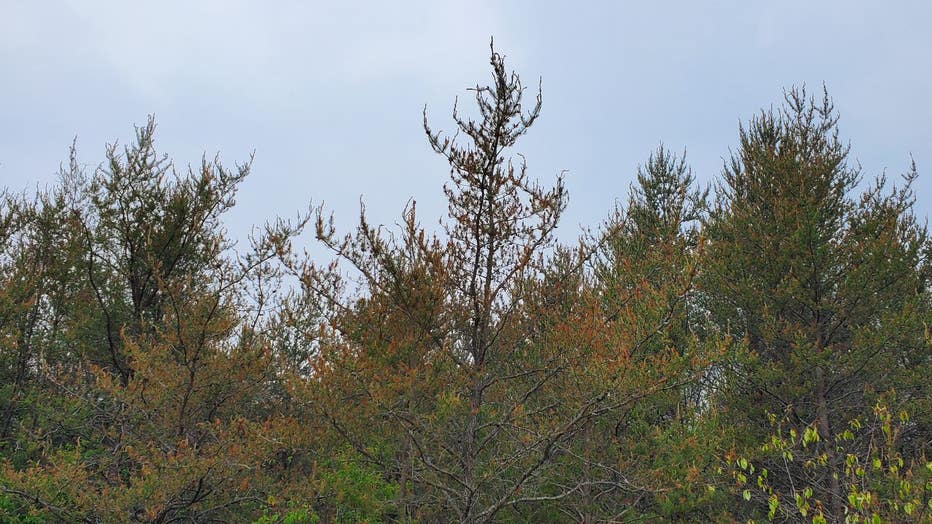Northern Michigan jack pine the target of budworm caterpillar
Close-up image of jack pine damage from budworm.
(FOX 2) - An outbreak of budworm in northern Michigan is spelling trouble for pine tree species with tens of thousands of acres threatened by the native caterpillar.
Budworm likes feeding on the needles of jack pine and red pine trees, which can leave the trees defoliated and heavily damaged. The end result is typically a bare tree that's grayish in appearance and prime fuel for wildfires.
When budworms come onto the scene, it's typically on a six to 12-year cycle. Curiously the last outbreak was in 2022 when 28,000 acres suffered defoliation - a sign that more vegetative carnage may be on the way.
The Department of Natural Resources says the last major outbreak was in 2015 when more than a hundred thousand acres were affected.
"What we’re seeing right now is an outbreak that started in 2022 with infestations in the central and eastern Lower Peninsula and some small pockets in the U.P.," said Simeon Wright, forest health specialist with the DNR.
The Great Lakes region is one of the few places you can find jack pine in the U.S. with most of the species in Canada. They're not known to live very long relative to other tree species - only about 40-55 years.

Jack pine tree damage. Photo credit: DNR
Those on the older end are the most vulnerable to insects that like to feed on their needles. What's left are reddish brown needles that eventually get blown off by wind and rain - which gives the trees an eerie look to them.
MORE: Red pines in northern Michigan trimmed to promote seed growth
From there, they become easy fodder for wildfires. The DNR reduces the risk by harvesting jack pine, which can remove more food for budworms and fuel for fires.
Budworm caterpillars turn into moths by way of eggs that are laid on the needles of jack pine trees. From there, the caterpillars hatch, spin cocoons and overwinter. When they emerge in the spring, they feed on the needles before becoming moths.

